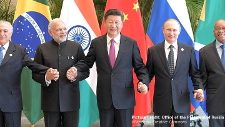Japan’s National Security Strategy: On Road to Upending Post-War Pacifism?

Jagannath Panda and Daisuke Akimoto
Late in 2022, Japan’s ruling government, led by Prime Minister Fumio Kishida, endorsed the makings of a pioneering national security policy. It is one that aligns with former Prime Minister Shinzo Abe‘s goal to amend Japan’s postwar Constitution, which renounces “the threat or use of force as means of settling international disputes” (Article 9). As part of the transition to such a grand vision, on December 16, 2022, the Kishida Cabinet released three defense documents, namely the National Security Strategy (NSS), the National Defense Strategy, and the Defense Buildup Program. These will determine Japan’s national security trajectory for at least the next ten years.
Considering the main debate internationally has centered around Tokyo abdicating its pacifist path, will the new NSS be a game changer in terms of deterring the growing (triple) threat in Northeast Asia? What do the responses of the United States, Russia, China, and North Korea entail? Will Japan’s new-found audacity serve its national and regional security interests?
Read this co-authored article by Jagannath Panda and Daisuke Akimoto at Japan Forward.




